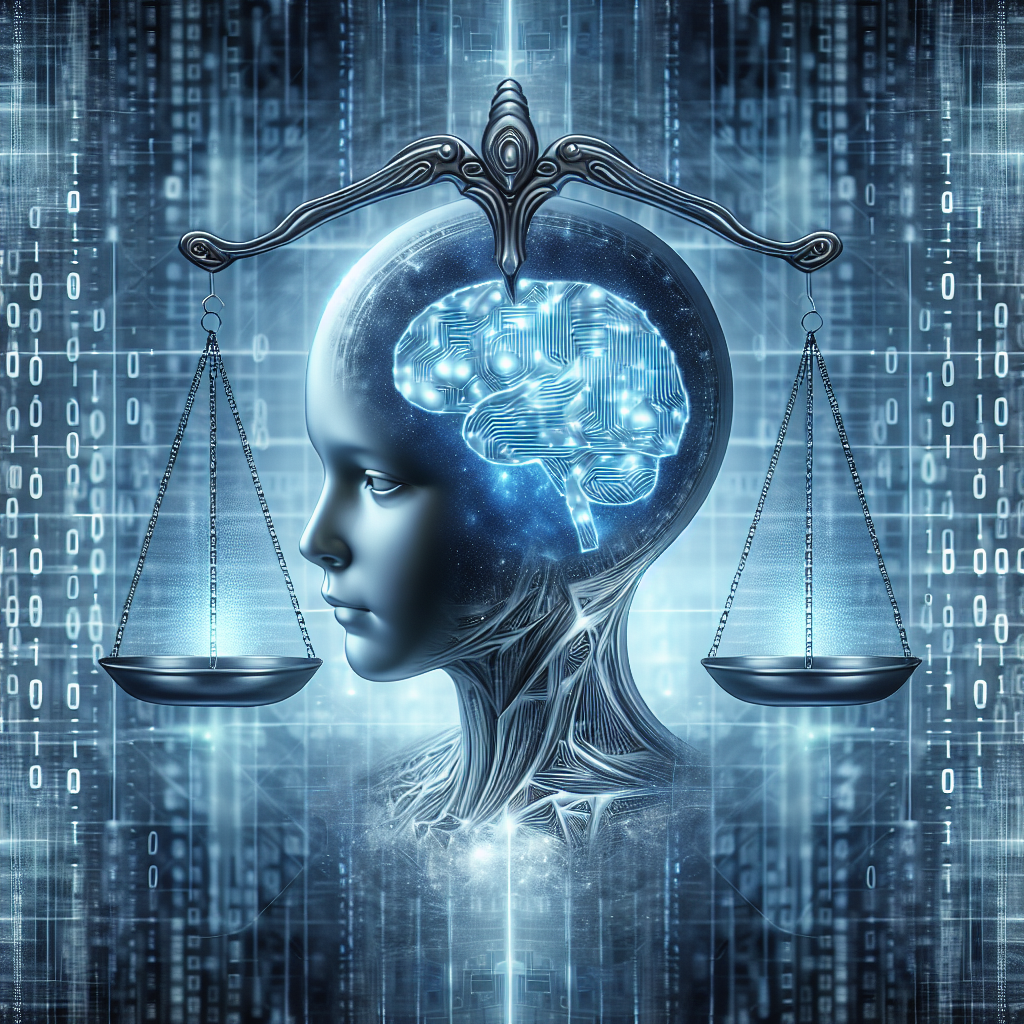Generative AI, also known as artificial intelligence, has been making significant advancements in recent years, with applications ranging from creating music and art to generating human-like text and even deepfake videos. While the technology has the potential to revolutionize various industries and improve efficiency, there are also ethical implications that need to be carefully considered.
One of the main ethical concerns surrounding generative AI is the issue of bias. AI systems are trained on large datasets, which can contain biases present in the data. These biases can then be perpetuated and amplified by the AI system, leading to discriminatory outcomes. For example, a generative AI system trained on text data from the internet may inadvertently produce sexist or racist content. This can have harmful consequences, such as reinforcing stereotypes or spreading misinformation.
Another ethical concern is the lack of transparency and accountability in generative AI systems. Unlike traditional software, which follows a set of rules programmed by humans, AI systems learn from data and make decisions based on complex algorithms. This can make it difficult to understand how AI systems arrive at their decisions, leading to concerns about accountability and potential misuse. For example, if a generative AI system produces fake news or malicious content, it may be challenging to trace back the source and hold the responsible parties accountable.
Furthermore, generative AI raises questions about ownership and intellectual property rights. Who owns the content produced by AI systems? Can AI-generated works be copyrighted or patented? These questions become even more complex when considering collaborations between humans and AI systems, where the line between creator and tool becomes blurred. For example, if a musician collaborates with a generative AI system to create a song, who owns the rights to the final product?
Privacy is another key ethical concern related to generative AI. AI systems are capable of generating highly realistic and personalized content, such as deepfake videos that manipulate someone’s likeness or voice. This raises concerns about consent and the potential for misuse, such as creating fake content for malicious purposes or invading someone’s privacy. It is crucial to establish clear guidelines and regulations to protect individuals from the harmful effects of AI-generated content.
In addition to these ethical concerns, generative AI also raises broader societal implications. For example, the widespread adoption of AI systems could lead to job displacement and economic inequality, as automation replaces human workers in various industries. There are also concerns about the impact of AI on creativity and human expression, as AI systems are increasingly used to generate art, music, and literature. Will AI eventually replace human creativity, or will it enhance our abilities and inspire new forms of artistic expression?
Despite these ethical implications, generative AI also has the potential to bring about positive change and innovation. For example, AI systems can help artists and designers explore new creative possibilities, generate novel ideas, and collaborate with machines in ways that were previously unimaginable. AI can also assist in solving complex problems and making more informed decisions in various fields, such as healthcare, finance, and environmental conservation.
To navigate the ethical implications of generative AI, it is essential for policymakers, researchers, and industry leaders to work together to develop robust guidelines and regulations. This includes establishing clear ethical standards for the development and deployment of AI systems, promoting transparency and accountability in AI decision-making processes, and protecting individuals’ privacy and rights. Collaboration between stakeholders from different sectors is crucial to ensure that AI technologies are used responsibly and ethically for the benefit of society.
In conclusion, generative AI offers tremendous potential for innovation and creativity, but it also raises important ethical considerations that must be addressed. By recognizing and addressing these ethical implications, we can harness the power of AI to create a more equitable, transparent, and inclusive future for all.
FAQs:
Q: What are some examples of generative AI applications?
A: Some examples of generative AI applications include creating music, art, literature, and design, generating human-like text and speech, and producing deepfake videos.
Q: How can bias be mitigated in generative AI systems?
A: Bias can be mitigated in generative AI systems by carefully selecting and preprocessing training data, using diverse and representative datasets, and implementing bias detection and mitigation techniques in the AI algorithms.
Q: Who is responsible for the content produced by generative AI systems?
A: The responsibility for the content produced by generative AI systems can vary depending on the specific context and use case. In general, stakeholders, including developers, users, and policymakers, share responsibility for ensuring the ethical and responsible use of AI technologies.
Q: How can privacy concerns be addressed in generative AI?
A: Privacy concerns in generative AI can be addressed by implementing robust data protection measures, obtaining informed consent from individuals whose data is used, and establishing clear guidelines and regulations for the collection, storage, and sharing of personal information.
Q: What are some potential benefits of generative AI?
A: Some potential benefits of generative AI include enhancing creativity and innovation, improving decision-making and problem-solving, and advancing scientific research and technological development. Generative AI has the potential to revolutionize various industries and improve efficiency in complex tasks.
Q: How can stakeholders collaborate to address the ethical implications of generative AI?
A: Stakeholders from different sectors, including policymakers, researchers, industry leaders, and civil society organizations, can collaborate to address the ethical implications of generative AI by developing guidelines, regulations, and best practices, promoting transparency and accountability in AI systems, and fostering dialogue and engagement with the public.

